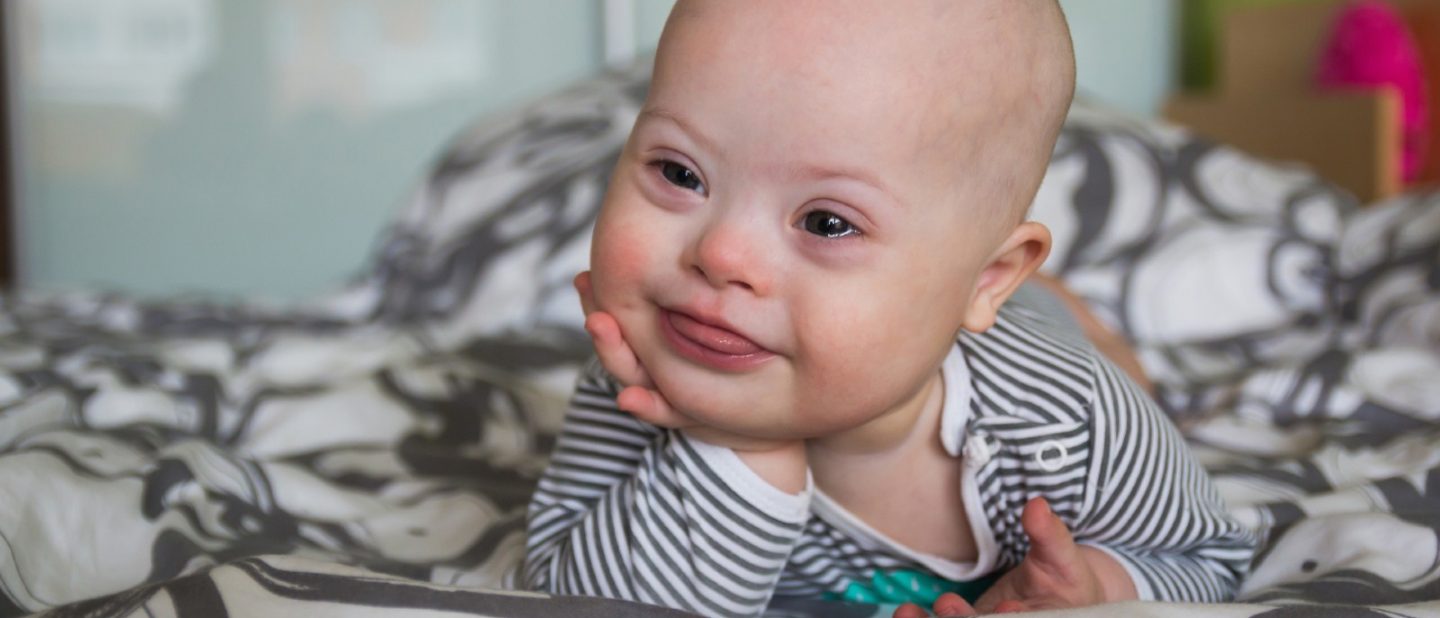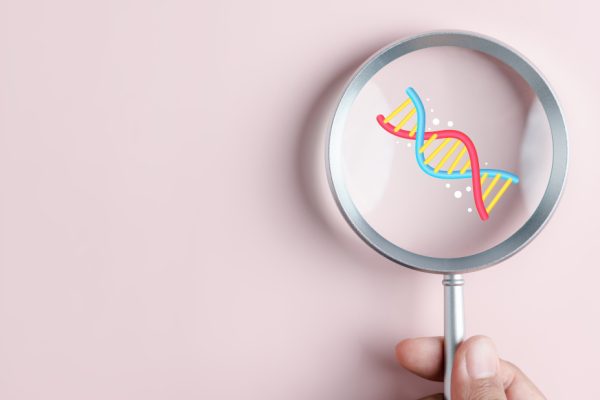
All about Down syndrome
There are approximately 13,000 people in Australia who have Down syndrome and the birth rate is one in every 1,100 births. The following information from Down Syndrome Australia will help you if your baby or unborn child has been diagnosed.
Firstly, it’s important to understand that every person with Down syndrome is an individual. Just like everyone else they will have different things they are good at and other things that they find harder. People from all different backgrounds and ages have children with Down syndrome – it’s a genetic condition, not an illness or disease.
It is nobody’s fault. There is no cure, and it does not go away.
Down syndrome occurs at conception. Our bodies are made up of trillions of cells; in each cell there are tiny structures called chromosomes and the DNA inside these chromosomes determines how we develop. Most people have 23 pairs of chromosomes in each of their cells (46 in total) but people with Down syndrome have 47 chromosomes in their cells. They have an extra chromosome 21, which is why Down syndrome is also sometimes known as trisomy 21.
People with Down syndrome may have:
- areas of strengths and other areas where they need more support, just like everyone else in the community
- some level of intellectual disability
- some characteristic physical features
- increased risk of some health conditions (many of which are treatable)
- some developmental delays.
How is Down syndrome diagnosed?
Screening for the condition can be carried out before a baby is born. If Down syndrome is not diagnosed before the child is born, doctors will usually identify a baby as having some features which are common to the diagnosis. This can be confirmed by a blood test. Prenatal testing is offered routinely to most women in Australia, but it is your choice whether or not to have prenatal testing and it is important to take time to ensure that you have understood all the correct information about the tests, their risks and limitations and the conditions that are being tested for. You should only have testing if you have given your permission.
Down Syndrome Australia has an easy-to-understand, factual and balanced factsheet for anyone considering prenatal testing which explains the different types of screening tests that are used along with resources for support and information. The factsheet can be download at downsyndrome.org.au/wp-content/ uploads/2020/02/DSA-prenatal- factsheet-C06.pdf
For more prenatal information the Down Syndrome Federation provides support and information for expecting parents. The national 1300 number (1300 881 935) will connect you to your local state or territory Down syndrome organisation. Staff at the organisation can provide you with non-directive information and answer questions. They can also arrange for you to talk to a parent of a child with Down syndrome.
Types of Down syndrome
There are three types of Down syndrome, which can be identified by a blood test, usually taken after birth.
TRISOMY 21
Ninety-five per cent of people with Down syndrome have Trisomy 21. In this type of Down syndrome, every cell in the body has an extra chromosome 21.
TRANSLOCATION DOWN SYNDROME
Three to four per cent of people with Down syndrome have translocation Down syndrome. In this type of Down syndrome, a partial chromosome 21 attaches itself to another chromosome. This variation does not significantly change the impact of the condition. Sometimes, translocation Down syndrome is hereditary, so parents will usually be advised to have blood tests and genetic counselling.
MOSAIC DOWN SYNDROME
One to two per cent of people with Down syndrome have mosaic Down syndrome. In this type of Down syndrome, which occurs after conception, only some cells have the extra chromosome 21. The rest of the cells have the usual genetic composition. Sometimes this means that fewer characteristics may be expressed, and possibly to a lesser degree.
What impact can Down syndrome have on health?
Many babies with Down syndrome are born without any health problems at all. However, some newborns may experience some health complications, such as:
• low muscle tone
• a heart defect
• digestive or feeding issues.
Some babies and children with Down syndrome may present with other health concerns such as:
• respiratory issues
• vision problems
• hearing difficulties.
If your baby has a particular health concern, you will need to seek more specific and detailed information. Please talk to your health care professional about any of these medical matters, and ask for information as you need it.
What will life be like for my child?
Most young people growing up with Down syndrome today will lead quite ordinary lives in the community. Some people may not need much help to lead an ordinary life, while others may require a lot of support.
Having an intellectual disability
When a baby is born, there is no way to tell what level of intellectual disability the child may have. Nor can we predict the way in which this may affect a person’s life. However, we do know that having Down syndrome will not be the most important influence on how that person develops and lives their life. Instead, family, environmental, cultural and social factors will shape their life, just like everyone else.
Communication
A lot of people with Down syndrome speak fluently and clearly, however – for many – speaking clearly can be difficult and they will need speech and language therapy to achieve this. Some people will find it very difficult to develop language or speak clearly at all. However, regardless of a person’s ability to speak, people with the diagnosis can understand a lot more than they can express with words. This often means that their abilities are underestimated, which can lead to frustration and isolation.
Living an ordinary life
While some aspects of life may be more challenging than for a typically developing person, such as healthcare and education, people with Down syndrome now commonly take part in mainstream school and post-school education, sports, performing and visual arts, community volunteering and the workplace.
A growing number of people with Down syndrome live more independently and are choosing to form relationships and get married. Life for people with Down syndrome these days is very different from how it used to be and looks even more hopeful for the future.
Many parents worry about how a child with Down syndrome will affect their family. Of course, every family is different, but personal stories and research show that most families that have a child with Down syndrome are stable, successful and happy and that siblings often have greater compassion and empathy. In fact, some studies have shown that families of children with Down syndrome have lower rates of divorce than the national average.
Support for new parents
Many new parents find it is helpful to connect with another parent who has been through a similar experience. The state and territory Down syndrome associations provide support, information and local linkages to other families. Personal visits to families at home or in metropolitan hospitals are often also available. New parent information packs are provided free to all new families and your local Down syndrome association will let you know about upcoming events in your area.
The above information has been adapted from information available on the Down Syndrome Australia website. For more indepth information, factsheets, support and resources visit downsyndrome.org.au






